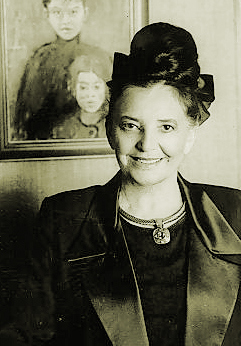Day 69
The Path to a Jewish Life
In memory of the lost generations of The Holocaust. In honour of the generations today. In celebration of the generations to come.
“Shimon HaTzadik (Simon the Just) used to say: the world stands on three things, on Torah, on avodah and on gemilut chasadim” (Ethics of the Fathers 1:2).
Torah is the source of our laws and traditions. Avodah is service of the Almighty through prayer. Gemilut chasadim is achieved through acts of charity and loving-kindness.
Shimon HaTzadik’s teaching defines how we should think, speak, and practise Judaism. These three principles constitute the tripod supporting all human existence. If any one of these key sup- ports is removed, the very structure of life will collapse. As Jews, we have a unique responsibility: through studying Torah, we stimulate the growth of our intellects and we learn Jewish values. Through avodah, we articulate our closeness to our Creator. Through gemilut chasadim, we emulate God’s ways, inspiring us to better our com- munities, society, and the world through all that we do.
Our Patriarchs were the original and outstanding exponents of these three key features of Judaism. Each one, through his unique character, highlighted the essence of one of these three principles.
Abraham excelled in gemilut chasadim. He dispensed kindness and hospitality, fed the hungry, defended the vulnerable, and prayed for strangers, even the unworthy. Isaac prayed and meditated in the fields. His life was a continuous act of devotion to God; he was even willing to be offered upon an altar. Jacob, the “dweller of tents,” was the consummate Torah scholar, whose knowledge and learning inspired him to spiritual greatness.
Echoes of this teaching can be found in Rabbi Abraham ibn Ezra’s fascinating introduction to the Ten Commandments. Ibn Ezra (1089–1164) divides all the commandments of the Torah into three categories:
Mitzvot ha-lev – commandments concerning thought and feeling, such as loving God, cleaving to God, loving our neighbours as ourselves, not hating others in our hearts, and not bearing a grudge.
Mitzvot ha-lashon – commandments concerning speech, such as prayer, the prohibition of slander, the priestly blessing, reciting the Shema, and Grace after Meals.
Mitzvot aseh – commandments involving action, such as giving charity, wearing tzitzit and tefillin, lighting Shabbat candles, and going on pilgrimage to Jerusalem.
The Decalogue was given on two tablets. The precepts which relate to our relationship with God are on the right hand side, while commandments relating to our responsibility to our fellows, appear on the left. If we look attentively, we see that the Ten Commandments are structured in a remarkable chiastic order (i.e., ABC CBA):
Commandments on the right hand-side:
Believe in God (thought)
Don’t believe in idols (thought)
Don’t take God’s name in vain (speech)
Keep Shabbat (action)
Honour parents (action)
Commandments on the left hand side:
Don’t murder (action)
Don’t commit adultery (action)
Don’t steal (action)
Don’t bear false witness (speech)
Don’t covet (thought)
Nechama Leibowitz explains the rationale behind this intriguing pattern. The Torah begins with the obvious and proceeds to the less obvious. With regard to God, it is well known that we should believe in the Almighty and not pay homage to any other purported power. It is less obvious, however, that our belief in God should be reflected in the way we speak. Our choice of words and our manner of speech are integral to the sacred life we lead. Least obvious, is the recognition that our belief in God must be translated into meaningful and responsible action. Ultimately, a good person is not one who thinks correctly or who merely talks about doing the right thing, but rather one who acts correctly in his or her daily life. Sound beliefs and appropriate expressions necessarily precede good conduct.
When it comes to our dealings with our fellows, the opposite order applies. It is well known that we are required to behave appropriately. We must not murder, commit adultery, or steal. It is not obvious to everyone, however, that our words form an important part of our responsibility to others. Slander can destroy reputations. Relationships can fail through insensitive communication or can be strengthened through kindness, consideration and appreciation. Least obvious of all is the importance we ascribe to our motivations in our relationships with others. There is only a small step from inappropriate thoughts to their actualisation.
The cultivation of positive habits of the mind, accompanied by a kind-hearted and genial disposition towards others, are essential elements of a healthy, meaningful and socially responsible life.
What we think, what we say and what we do are, therefore, equally important components of a Jewish life, as represented by Torah, avodah, and gemilut chasadim.
Jewish thought requires us to identify with just causes and to empathise with the needy and downtrodden, in tune with the spiritual aspirations and the prophetic challenges of our tradition. Jewish pride, including pride in the State of Israel and genuine causeless love for others, are ennobling components of responsible Jewish thought.
Jewish speech includes prayer and blessings, but it is also practised in constructive sentiments, in making others laugh, in brightening their lives, and realising happiness, which is one of God’s greatest gifts to humankind. Saying the right thing at the right time and curbing insensitive and harmful remarks, are all part of appropriate Jewish speech.
Jewish behaviour is the ultimate hallmark of a Jewish life, as embodied in our tradition. Contrary to popular belief, Jewish law does not forbid kneeling. Indeed, we kneel and prostrate ourselves before God on the High Holy Days. However, our tradition regards kneeling as a passive form of worship, paying homage to the
Creator while doing nothing. Similarly, Jewish ethics demands that we stand up and be counted, that we are tireless and passionate in our pursuit of what is right.
These principles help orientate us and should form the basis of a Jewish Life. Shimon HaTzadik taught that the survival of the world itself, depends on these three principles. His example, and the noblest achievements of subsequent generations, teach us that our lives should revolve around these three vital ingredients: Torah, avodah, and gemilut chasadim.

Chief Rabbi Ephraim Mirvis
Chief Rabbi Ephraim Mirvis is the 11th Chief Rabbi of the United
Hebrew Congregations of the Commonwealth. He has previously
served as Chief Rabbi of Ireland and as Rabbi of Finchley Synagogue, London. He is the Founding Rabbi of Sacks Morasha Jewish Primary School as well as of the Kinloss Learning Centre.
He is also President of LSJS and a frequent contributor to the media.





